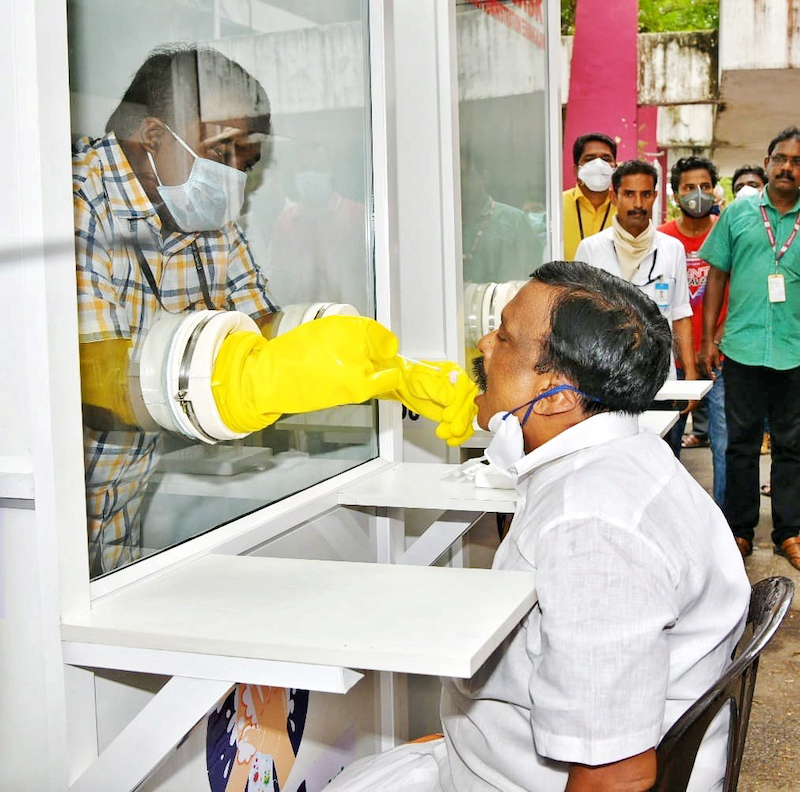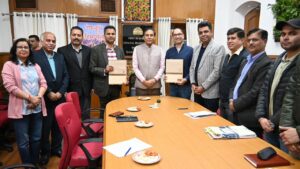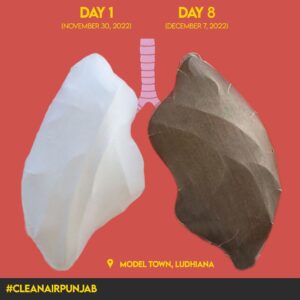Kerala – that dubs itself as the Gods Own Country has shown it is truly that as it fights the invisible enemy, Coronavirus, like no one else in the world has so far. Kerala went into a battle move in late January, ever since medical students returned from Wuhan, from where Coronavirus originated.
When the rest of India was not even thinking of the virus, Kerala rolled out its containment plan drawing heavily from its previous experience in taming the Nipah virus outbreak of 2018. Kerala could have been the most vulnerable, given its large number of residents living and working in countries where the Coronavirus was already killing people. Besides, being a tourism hub, the Gods Own Country always has a floating population that could have posed a risk.
But what Kerala did next is what made the world sit up and take notice. It has flattened the Coronavirus curve with a clear-cut, well-thought-out, and holistic plan. Its strong leadership, literate, and educated citizenry helped the state government in the battle. The Kerala leadership had contingency plans ready, and more importantly, had a very effective communication strategy in place. It carried out social mobilisation to identify, isolate, test, and treat the infected.
“We shall overcome” is the declared resolve of Kerala Chief Minister Pinarai Vijayan on his Twitter wall. On April 24, he sadly announced “It is with much sorrow that we report a COVID19 related death in the State. A four-month-old infant has succumbed to the disease.”
The day saw 15 recoveries and 3 new cases, 21,725 under observation. 21,941 samples were tested and 20,830 were negative. It is such transparency and clear messaging that earned the state government support of the masses. Many volunteered to join the health workers to spread out all across the 14 districts to carry out the fight.
Just four casualties since January is no mean achievement. The moment students arrived from Wuhan, the state immediately placed them in isolation wards. Their fellow travellers on the Kolkata-Kochi flight were identified and also home quarantined. “Our battle began when the first travellers from Wuhan arrived in the state on January 23,” said Kerala Health Minister KK Shailaja.
Kerala owes its success to its socio-economic development – a result of the years and years of investment in education and health. When the fight began in January itself, Kerala had three confirmed patients – students from Wuhan who returned home – and the number soon increased to more than 100. Kerala then had one-fifth of all the Indian cases. Critics ridiculed the Kerala model, then. But the state’s strong public health system and willing community participation are the essential ingredients of the Kerala success formula.
Kerala was first with lockdown before the national lockdown was announced. When it came to logistics, supplies were home-delivered, midday meals from schools were sent to the children in homes, migrant labourers were taken care of. Kerala’s Break The Chain campaign, in mid-March, was proving to be successful.
An army of government health workers and volunteers carried out aggressive contact-tracing and testing to bring the situation under control. Kerala was also the first to react when it came to procuring test kits from Pune-based Mylab.
Preliminary estimates suggest the state could incur a revenue loss of Rs 50,000 crore (FY2021) due to the COVID-19 crisis. Kerala Finance Minister Dr Thomas Isaac said, “It does not matter what is the cost involved in flattening the curve.”
Today, Kerala has plans to start “reserve quarantine” along with the present “track, trace and treatment” regime as part of a multi-pronged strategy to fight Covid-19. Reserve quarantine is a practice of detaching the most vulnerable people, aged or people with co-morbidity conditions, from the rest and monitoring their health indicators closely.
Kerala is also trying to help build herd immunity, wherein a large number of people in the community are immune to the virus. Kerala has also readied a plan to face the next wave of Coronavirus, if and when it comes.
Mr Lakshmana Vekat Kuchi is a senior journalist tracking social, economic, and political issues across the country. He was associated with the Press Trust of India, The Hindu, Sunday Observer, and Hindustan Times.







Comments are closed.